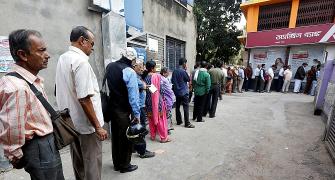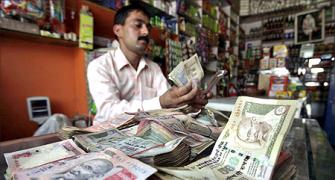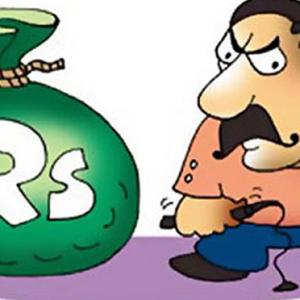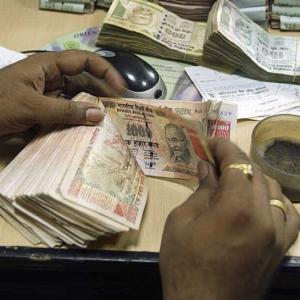I-T heat on thousands of firms for unusual cash deposits.
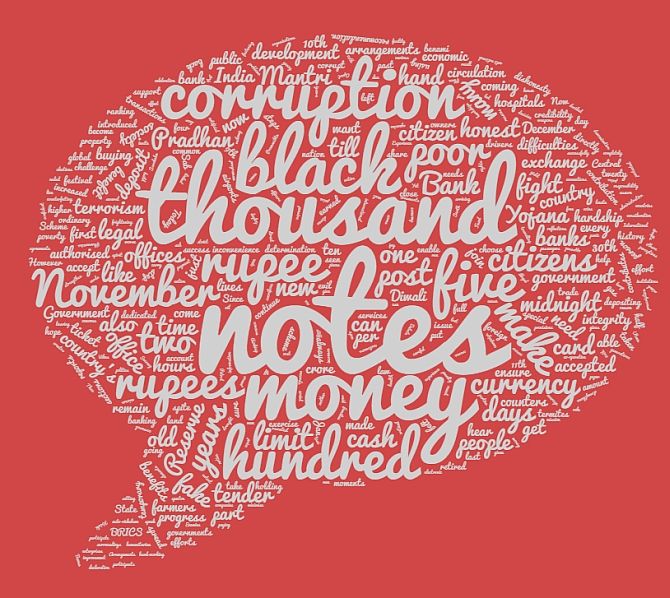
The income tax department is leaving no stone unturned to make the Pradhan Mantri Garib Kalyan Yojana (PMGKY), also known as the Income Declaration Scheme (IDS)-II, a success.
With a fortnight to go before the March 31 deadline, the tax department has issued thousands of notices to firms over the unusual surge in cash deposits in their bank accounts to the tune of Rs 1.2 lakh crore during the demonetisation drive.
These companies include prominent jewellers, telecom operators, insurance companies and fuel retailers who are said to have deposited large amounts of cash during the note ban period. The notices were served under Section 142 of the Income Tax Act.
Business Standard reviewed a copy of the tax notices sent to some prominent names from India Inc where companies were asked to divulge sources of the deposits/income along with documentary proof within 15 days.
These entities also have a choice to respond via email to the tax department with related documents attached. There’s also a reference guide and helpdesk phone number provided in the notice.
“The notices were served manually as well as electronically. These firms can also furnish details physically at their respective tax jurisdiction,” said a senior I-T official.
“If we are satisfied with the information, there will be no follow-up. But in case the response is not satisfactory, we might seek more documents. We have used data analytics to undertake the entire exercise,” explained the official.
The entire exercise is part of Operation Clean Money -- a programming software used to get answers on all the deposits made during the demonetisation period.
During the seven-week deposit window, more than Rs 2 lakh was deposited as cash in over 10 million accounts that have more than seven million unique permanent account numbers attached to them, according to official data.
Of this, the I-T department has identified 1.8 million who were asked to do online verification through e-filing. These people had come under scrutiny because their cash deposits did not match their tax profiles.
The said account holders have been targeted via the use of data analytics provided by banks for the period between November 9, when Rs 500 and Rs 1,000 notes ceased to be legal tender, and December 30, when the window for deposit of such notes in banks ended.
Of the 1.8 million who were asked to provide online verification, only 900,000 provided online responses.
Based on this, assessing officers have been asked to consider the remarks provided in the online verification and seek information to quantify any unexplained income.
“Those who were unable to file response or the information provided was not sufficient are now getting tax notices,” said the official quoted earlier.
Sources said that a substantial amount of old currency made its way to petrol pumps, utilities, telecom operators, hospitals and airlines, as they were accepting old notes until December 15.
Fearing short supply following demonetisation, the essential expenses have been increased and could be the reason for the surge in deposits.
Offering a final option to holders of black money, the government had on December 17 provided companies, firms and individuals time until March 31 to come clean on deposits of banned currency notes in banks after demonetisation.
For those holding unaccounted cash, the PMGKY proposed to tax 50 per cent of the declared amount and park another 25 per cent in an interest-free deposit for four years.
The informal tax collection target for the PMJKY was over Rs 75,000 crore, double that of the IDS-I, which closed last year. To collect that amount, the disclosure would have to be to the tune of Rs 1.5 lakh crore.
The scheme is part of the Taxation Laws (Second Amendment) Act, 2016, approved by the Lok Sabha in December 2016.
IMAGE: A word-cloud analysis of the prime minister's address to the nation on March 8, 2016, banning Rs 500 and Rs 1000 notes.


